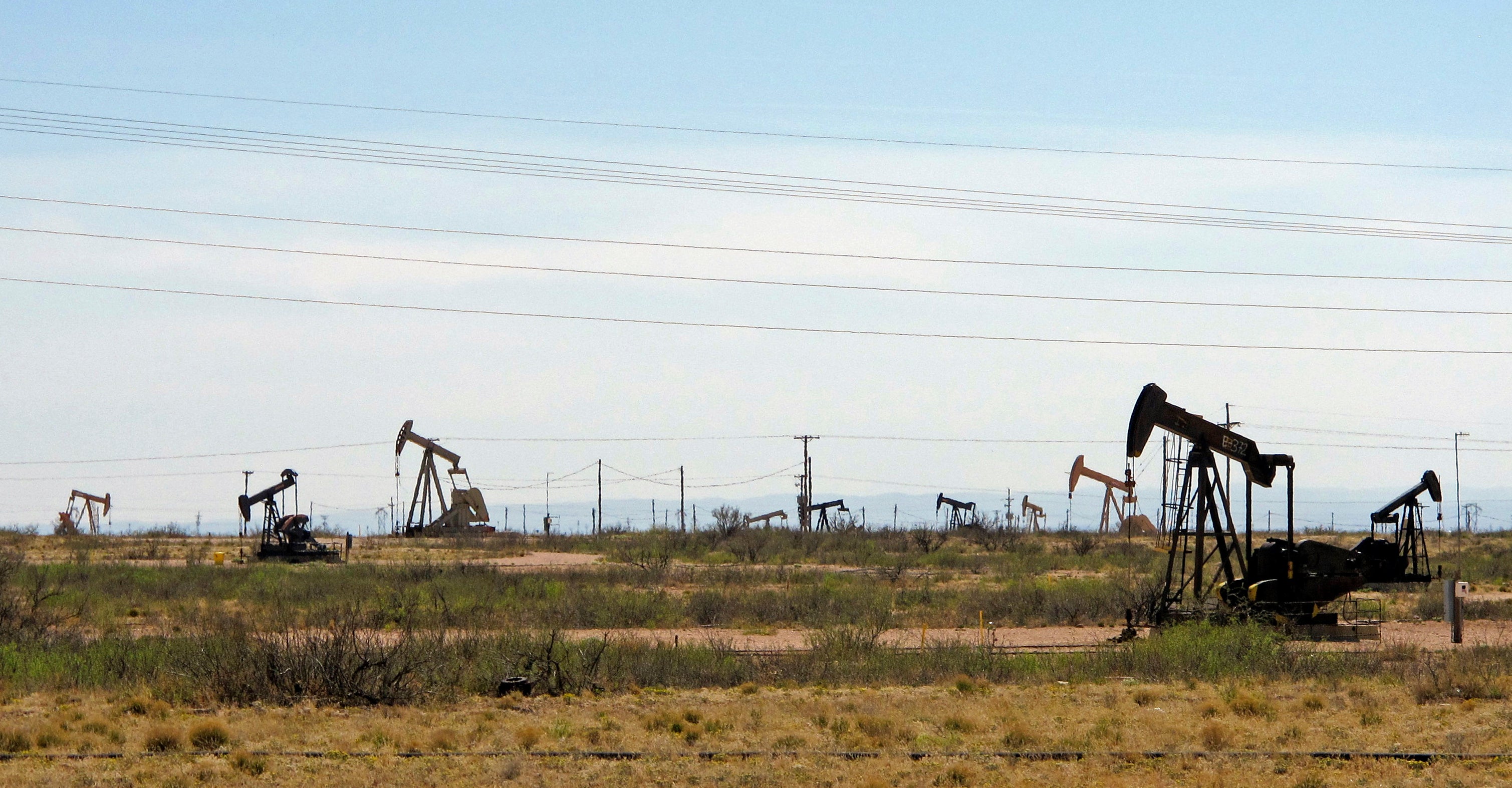New Mexico proposes regulations to reuse fracking wastewater
New Mexico environmental officials have proposed a new regulatory framework for reusing wastewater with a major focus on treating and repurposing the used, salty byproducts of oil and natural gas drilling in a major U.S. petroleum production zone

Your support helps us to tell the story
From reproductive rights to climate change to Big Tech, The Independent is on the ground when the story is developing. Whether it's investigating the financials of Elon Musk's pro-Trump PAC or producing our latest documentary, 'The A Word', which shines a light on the American women fighting for reproductive rights, we know how important it is to parse out the facts from the messaging.
At such a critical moment in US history, we need reporters on the ground. Your donation allows us to keep sending journalists to speak to both sides of the story.
The Independent is trusted by Americans across the entire political spectrum. And unlike many other quality news outlets, we choose not to lock Americans out of our reporting and analysis with paywalls. We believe quality journalism should be available to everyone, paid for by those who can afford it.
Your support makes all the difference.New Mexico environmental officials have proposed a new regulatory framework for reusing wastewater with a focus on the used, salty byproducts of oil and natural gas drilling in a major U.S. production zone.
The Environment Department announced Thursday its petition to the Water Quality Control Commission to begin formal deliberations on the proposed rules. Public hearings could begin as soon as April.
New Mexico, the No. 2 state for oil production behind Texas, is looking to its energy sector and water-intensive fracking as a potential source of treated water for industrial applications — and to offset water demands that are depleting freshwater aquifers amid drought.
“We need to protect our fresh groundwater supplies not only from degradation or contamination but from overuse,” said John Rhoderick, director of the water protection division at the Environment Department. “We need to do everything we can to maintain those supplies because they’re not being replenished.”
He said initially rules would only allow for “closed loop” projects involving treated oil-field water, with no discharge.
“Although this identifies and encourages pilot projects and demonstration projects, they have to be non-discharging," Rhoderick said. "We feel that’s the safest way to do it.”
In a related legislative proposal from Gov. Michelle Lujan Grisham, New Mexico would underwrite development of a strategic new water source by buying treated water that originates from oil and natural gas drilling. The governor is seeking a $500 million appropriation by the Legislature for the project.
That initiative doesn't aim to provide potable water but rather a supply of treated water for emerging businesses ranging from microchip manufacturers to hydrogen fuel producers that separate the element from water in an energy-intensive process. Critics fear the plan might only spur more drilling for petroleum.
Rhoderick said New Mexico communities already reuse about 40% of residential wastewater after treatment and purification to irrigate city parks, playing fields, landscaped roadway medians and more. But broader reuse options are needed to ensure economic and population growth in the future, he said.
“We felt the need to give some clear direction and certainty to industry because we need them to invest in the technologies and the science,” said Rhoderick.
The proposed rules are an outgrowth of 2019 state legislation that encourages the oil and natural gas industry to favor water treatment, reuse and recycling over reliance on natural aquifers. Concerns about water overuse include depletion of the vast underground Ogallala Aquifer that sustains communities in eastern New Mexico and extends to the Dakotas and Wyoming.
Collaboration on the proposed rules included a public-private research consortium anchored by New Mexico State University. Private consortium sponsors include energy conglomerates Chevron and ExxonMobile, oil services provider NGL Energy Partners and infrastructure firm Tallgrass Energy, a developer of hydrogen ventures in New Mexico.
Subscribe to Independent Premium to bookmark this article
Want to bookmark your favourite articles and stories to read or reference later? Start your Independent Premium subscription today.